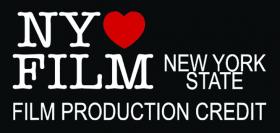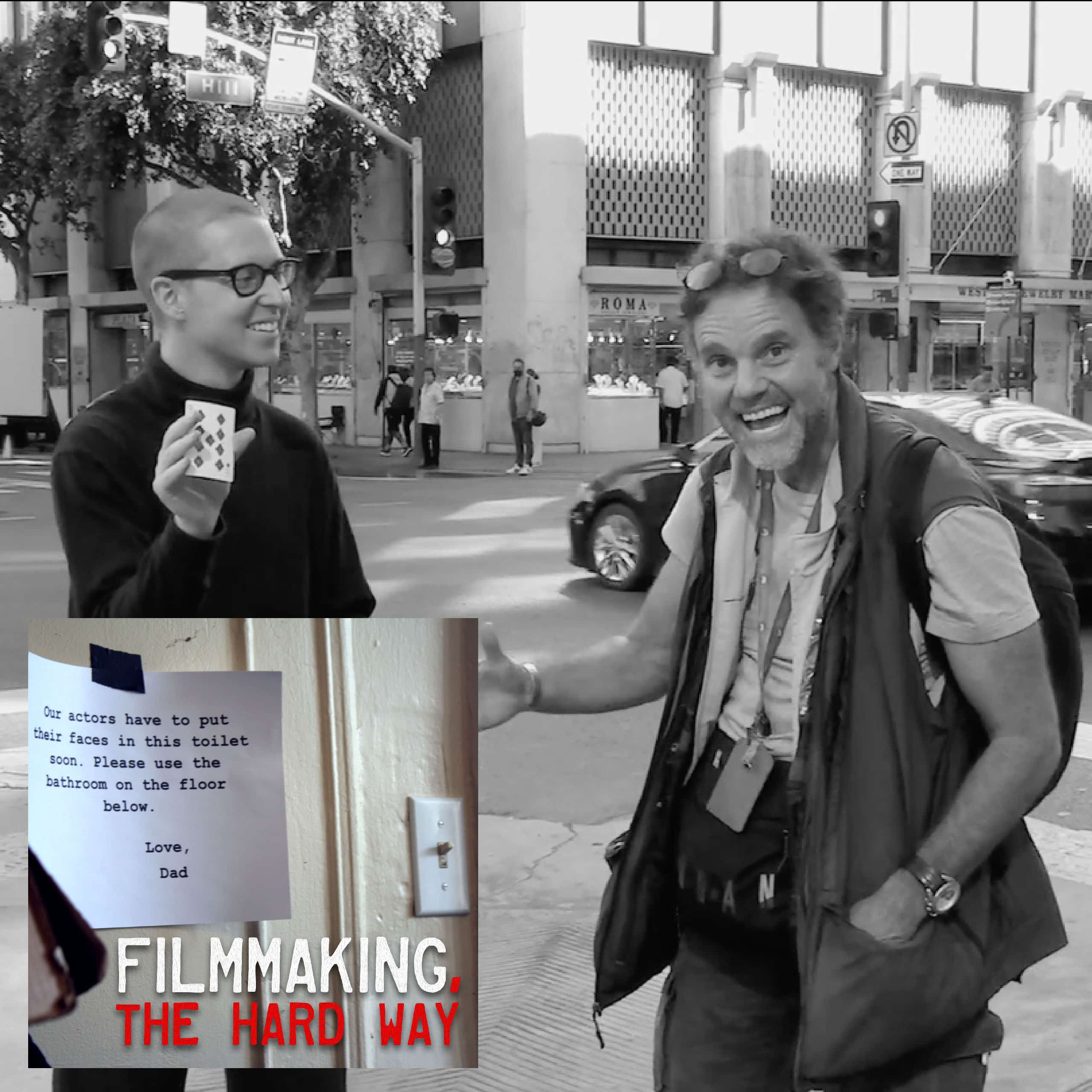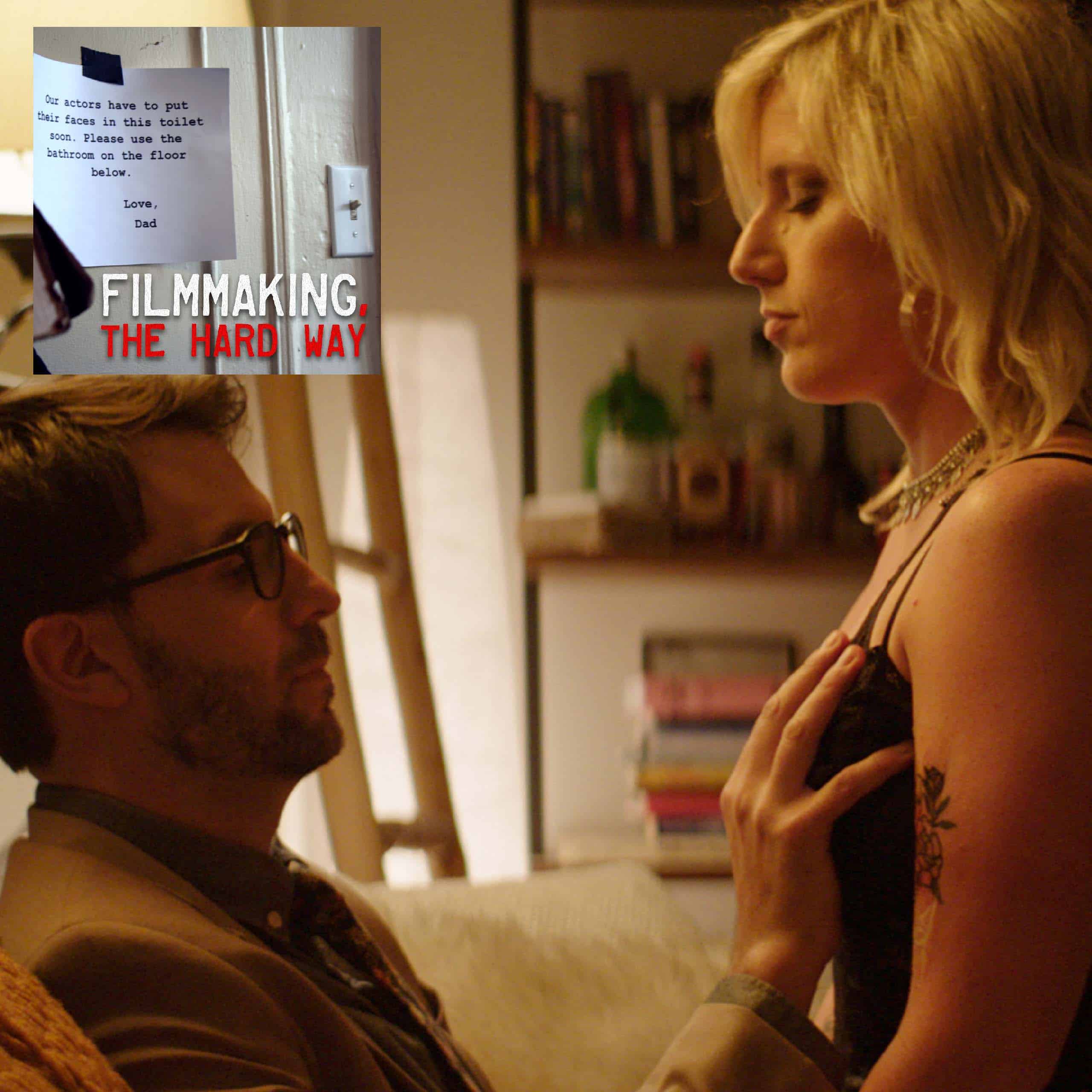
ARTICLE: The Taxwoman/Taxman/Taxperson Cometh
Things About the NYS Tax Credit Program I Wish I’d Have Read Before Finding Them Out the Hard Way
:: by Josh Folan :: 10/9/18 ::
I’m currently facing the firing squad that oversees the final audit phase of the New York State Film Tax Credit Program for a feature titled Ask For Jane, on which I am a producer and the UPM, and as I’m working through the tedium of all the additional documentation requests, clarification queries and outright denials of expenses, it occurred to me that I wish I’d have read what I’m about to write before I started this process, which has been my first time doing so. Were that the case, my last few days of plodding through the endlessly-tabbed excel docs that comprise the application process would have been far less painful and I wouldn’t be spending my Sunday venting into my laptop…so you’re welcome for having endured this pain and sparing you the same as you pursue your credit of thirty percent of “qualified expenses” from the gender-neutral Empire State tax person.
I’ll spare us both going through the generalities of the process – you can read up on that via the state’s website for the program, and the team that handles the applications is incredibly helpful and willing to answer any questions you may have, no matter how stupid, and thoroughly tested the parameters of stupid I have. I will instead cater to the short attention span of today’s society and touch on, in listicle form, the various random hiccups I encountered along the way where it did not occur to me it might be warranted to ask a stupid question until I had already done a stupid thing.
- This wasn’t a hiccup I ran into, it was actually something I got right, but it bears mentioning. After you submit your initial application via the website, you’ll be assigned a contact person who will reach out and offer up an opportunity to come into the office and meet to talk about your project and allow you the chance to begin your barrage of stupid questions as they explain the process to you front to back. Do not pass this up, no matter how busy you might be with the film itself or whatever else. It’s an invaluable opportunity to establish a personal connection with the people who will decide your tax credit fate on this project and, hopefully, many future ones.
- You may or may not have noticed the quotations around “qualified expenses” in the first paragraph, but it is important to understand the distinctions necessary for an expense to be eligible for the credit. There is a massive list of possible production expenses, categorized by budget account number, on the “Schedule of QE” tab of the “final application template book” you will be sent after your production is in the state’s system. This is intended to tell you, categorically, what types of expenses are qualified, but it did not occur to me that this might not be the only deciding factor. The tax credit is funded by tax payers on the logic that granting productions this tax break means those productions will, among other things, be incentivized to spend money on local products and services that will generate sales tax revenue for the state. The tax credit program, in turn, requires you to have paid sales tax on an expense in order for it to be eligible for the credit. This is a given in many cases, retail stores and larger equipment rental companies, but small independent productions, in the interest of spending the absolute minimum because you have basically no money, often source things via alternative and creative means. In an example from this production, we had a catering vendor that was a very small one-person operation and we paid them as an independent contractor – no sales tax was charged to us. At the time, it did not even cross my mind that could be a concern. When you’re experiencing the brutal hemorrhaging of cash that is production on a limited budget, the less the invoice has next to “amount due” the better…you don’t ask questions. As I’m doing the final audit for the tax credit though, the auditor is requesting the NYS sales tax vendor number for the catering expenses and none exists – which means those costs will not be eligible for inclusion in our credit, even though catering as a category is. Had I been aware of the need for that sales tax vendor number from the start, I’d have paid more attention to the sales tax omission on our catering quote and invoices – and I could have at least done the math of whether we were saving more by using this particular contractor at a relatively discounted price, or if it would have been better long run to pay more at the time but be able to include those expenses in our tax credit. I still have not done said math — I don’t even want to know if I blew it or not, seeing as it’s a sunk cost at this point. #producersanity
- In that same wheelhouse, it is much more of a pain in the ass to hunt down the sales tax vendor ID numbers for your vendors a year after your shoot when you’re going through the tax credit audit than it would be if you accumulated them as you were dealing with the vendors at the point of sale, when money is still on the line for them and they are more inclined to be helpful. While the state’s outline of process for obtaining verification of a vendor’s sales tax collecting status clearly states that the sales tax vendor ID is not the same thing as the company’s EIN, I’m finding it actually is for most of the vendors – so if you happened to collect a W-9 for the vendor, you might be ok. If not, or if their EIN does not work on the clunky state sales tax vendor verification lookup website, you’re going to be working the phones trying to hunt down and drag it out of someone who actually happens to know what you’re babbling about…a witch hunt that I’m finding to be rather exhausting. So save yourself a headache, obtain and verify them as you go in production.
- To sprinkle a little positivity into this topic, the tax credit program does not require you to provide verification of sales tax vendor ID’s for purchases of $150 or less where you have a receipt stating that sales tax was collected – so you thankfully won’t have to scramble around getting this information and verifying it for every mom and pop corner deli purchase.
- Car shares (Uber/Lyft) are not qualified expenses for some reason or another, which I did not know until they were rejected in my final audit. Taxis, trains, and virtually every other mode of transportation are qualified. Keep that in mind when choosing how to shuttle cast and crew around as needed. The convenience of shares is nice, but if you can spare the time and aggravation of other methods you’ll save some dough.
- There’s a $25 cap for anything deemed a “lunch,” so find a way to keep individual meals under that threshold to ensure the full cost is qualified.
- Invoices collected and receipts saved for everything, no matter how small and seemingly insignificant.
I hope reading of my mistakes help you make fewer of them in your own filmmaking endeavors, and don’t hesitate to shoot me an email if you have questions on the topic that aren’t fielded here or on the NYS Tax Credit Program website.




